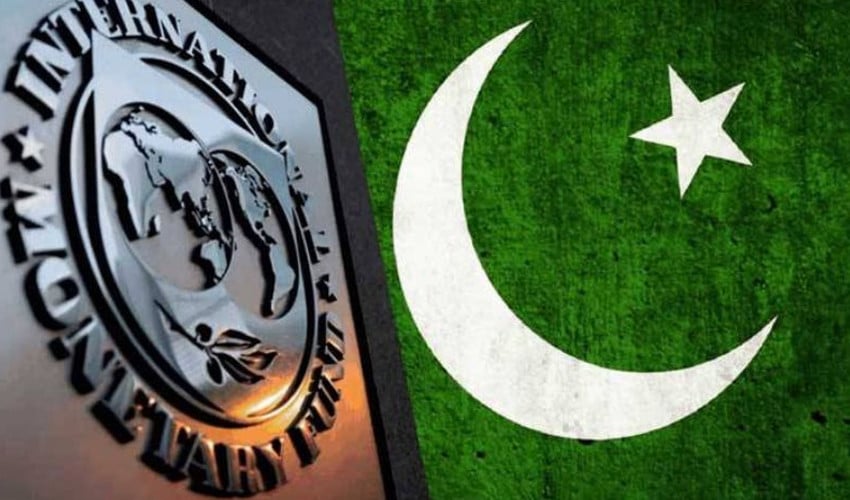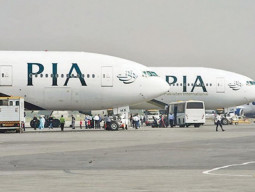
It is a rare day in Pakistan when a major newspaper does not carry a story on the International Monetary Fund (IMF), its pronouncements, and its demands. The Fund has acquired a pivotal role in the management of Pakistan's economy. Two questions need to be asked: First, how is it that a group of remote international bureaucrats can dictate economic policies to the government? And second, are Pakistan's interests served by these policies?
In the tattered world economy of the post-war period, the IMF and its sister organisation, the World Bank, made good sense. The World Bank set about financing the reconstruction of European economies devastated by the war. The IMF's role was to promote international monetary cooperation, facilitate balanced trade, and ensure global financial stability in the aftermath of World War II. It aimed to prevent the competitive currency devaluations and trade restrictions that had exacerbated the Great Depression.
Initially, the IMF operated under the Bretton Woods system, where member countries pegged their currencies to the US dollar, which was convertible to gold. This system provided stability in exchange rates but collapsed in 1971 when the US suspended the dollar's convertibility to gold, marking a shift to floating exchange rates. Markets replaced governments as the primary arbiters of the value of national currencies.
At this point, the raison d'être for the IMF was no more, and the organisation should have been disbanded. However, highly paid international bureaucrats do not take kindly to the prospect of losing their influence, let alone their jobs. The search was on to find a new role for the IMF. A confluence of events caused by the economic turbulence of the Arab oil embargo of 1973 led the IMF to believe it had found its answer. It would act as a glorified credit-rating agency. Western banks, replete with Arab oil money, would seek the IMF's imprimatur to invest this liquidity in the world's poor developing countries. The IMF had found its niche and has never looked back.
The arrangement works as follows: A poor developing country, due generally to mismanagement, corruption, or both, finds itself in dire need of hard currency. Commercial lenders are unwilling to commit their funds without adequate safeguards. Enter the IMF. It offers to lend some of its own money provided that the embattled recipient government agrees to a set of economic reforms mandated by the organisation. These reforms aim to enhance the borrower's ability to service its impending debt obligations. When a deal is struck, the IMF disburses its own funds. Simultaneously, commercial lenders, reassured by the IMF's involvement, step in with additional funds.
Typically, the IMF's own funds constitute only a small proportion of the borrower's total debt. Commercial lenders provide the rest. Yet, the IMF's participation is crucial. If it does not "certify" a country by participating, the country effectively gets cut off from all other sources of credit. And herein lies the source of the IMF's power to dictate economic policies to governments.
There is also suspicion that the IMF did not die a natural death when the gold standard collapsed because, in part, it had become a useful instrument of US foreign policy, promoting the country's political and economic interests around the world. Consider the following:
The United States is the largest single shareholder in the IMF, holding approximately 16.5% of the total voting power. This gives it effective veto power over major decisions requiring an 85% majority. Critics argue that this voting structure gives the US disproportionate influence over IMF policies and decisions, potentially aligning IMF actions with its strategic interests.
IMF loan conditions often require recipient countries to implement economic reforms such as privatisation, deregulation, and trade liberalisation. These policies align with the US-favoured neoliberal economic framework. Critics argue that these reforms sometimes benefit multinational corporations, including US-based ones, at the expense of local economies and populations.
During the Cold War, the IMF was accused of favouring US allies by providing them with more favourable lending terms, even if their economic performance was poor. For instance, pro-Western regimes in Latin America often received IMF support.
Some analysts argue that during the post-9/11 period, IMF lending has occasionally coincided with US foreign policy goals. For example, countries like Pakistan received significant IMF support during times when they were key US allies in the war on terror.
Academic studies have found correlations between IMF loan approvals and a country's alignment with US foreign policy interests, such as voting patterns in the United Nations or military cooperation with the US Research by political economists like Eric Neumayer has highlighted how political considerations, including US strategic interests, may influence IMF lending decisions.
Many developing countries and critics from the Global South argue that the IMF's policies disproportionately favour Western powers, particularly the US, leading to a perception that the IMF serves as a tool for advancing American economic and geopolitical agendas.
This brings us to the second question: Are the borrower's national interests served by IMF-mandated economic policies? These policies have a single overriding objective: to enhance the borrower's ability to service its debts. Some elements of these policies are useful and should be obvious to recipient governments, such as better tax collection and cutting government expenditure. But these are small components of a comprehensive neoliberal agenda that puts the interests of lenders well above those of the people. Consider, for instance, the recent IMF-mandated increase in electricity prices. These prices have skyrocketed out of the range of most of Pakistan's population. Once these hapless people have paid their electricity bills, not much is left over for anything else. It is an absolute disaster.
Then there is the issue of sovereignty: There is something deeply unsavoury, not to mention shameful, about a democratically elected government of a nation of 250 million people taking instructions on managing debt from a handful of international bureaucrats based in Washington, DC. The stratospheric and growing cumulative value of this debt and the near impossibility of ever paying it back is another matter altogether.
THE WRITER IS CHAIRMAN OF MUSTAQBIL PAKISTAN AND HOLDS AN MBA FROM HARVARD BUSINESS SCHOOL


1737361335-0/BeFunky-collage-(3)1737361335-0-165x106.webp)
1737361144-2/tiktok-(1)1737361144-2-165x106.webp)
1737363022-0/fizza-(55)1737363022-0-165x106.webp)




1737325890-0/image-(11)1737325890-0-270x192.webp)


1737188551-0/Untitled-design-(97)1737188551-0-270x192.webp)
1737185197-0/Express-Tribune-(2)1737185197-0-270x192.webp)










COMMENTS
Comments are moderated and generally will be posted if they are on-topic and not abusive.
For more information, please see our Comments FAQ